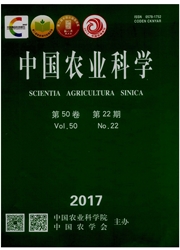

 中文摘要:
中文摘要:
DNA甲基化是植物逆境响应的重要机制,调控了开花、产量、抗性等与物种稳定性或品种一致性密切相关的性状。这些性状相关位点的甲基化变异在群体内基本稳定一致、在世代间也具有一定的可遗传性,随机变异较少。病原菌胁迫下,抗性相关位点多出现低甲基化、全基因组多为高甲基化,这符合生物遗传与进化机制,规律性强,随机性小。这一现象在烟草、拟南芥等多种生物胁迫,以及冷、盐、重金属和多倍体等非生物胁迫研究中得到了直接或间接证据的支持。本文讨论了甲基化分析中误差的可能来源并提出了控制措施。
 英文摘要:
英文摘要:
DNA methylation is an important mechanism for plant stress response.It regulates traits such as flowering,yielding and resistance,which are closely related to the stability of species or variety.Most of these related DNA methylation alterations are uniform within population,somewhat heritable between generations and therefore,only slightly at random.Under the biotic stresses,the methylation levels are decreased at the resistance gene loci while increased on genome-wide level.This is consistent with the mechanisms of genetics and evolution,and therefore,should not be at random.Such a phenomenon can be directly or indirectly proved in biotic stresses of tobacco and Arabidopsis,or in abiotic stresses such as cold,salt,heavy metal and polyploidization.The causes of random variation in methylation analysis and the control measures were also discussed.
 同期刊论文项目
同期刊论文项目
 同项目期刊论文
同项目期刊论文
 期刊信息
期刊信息
